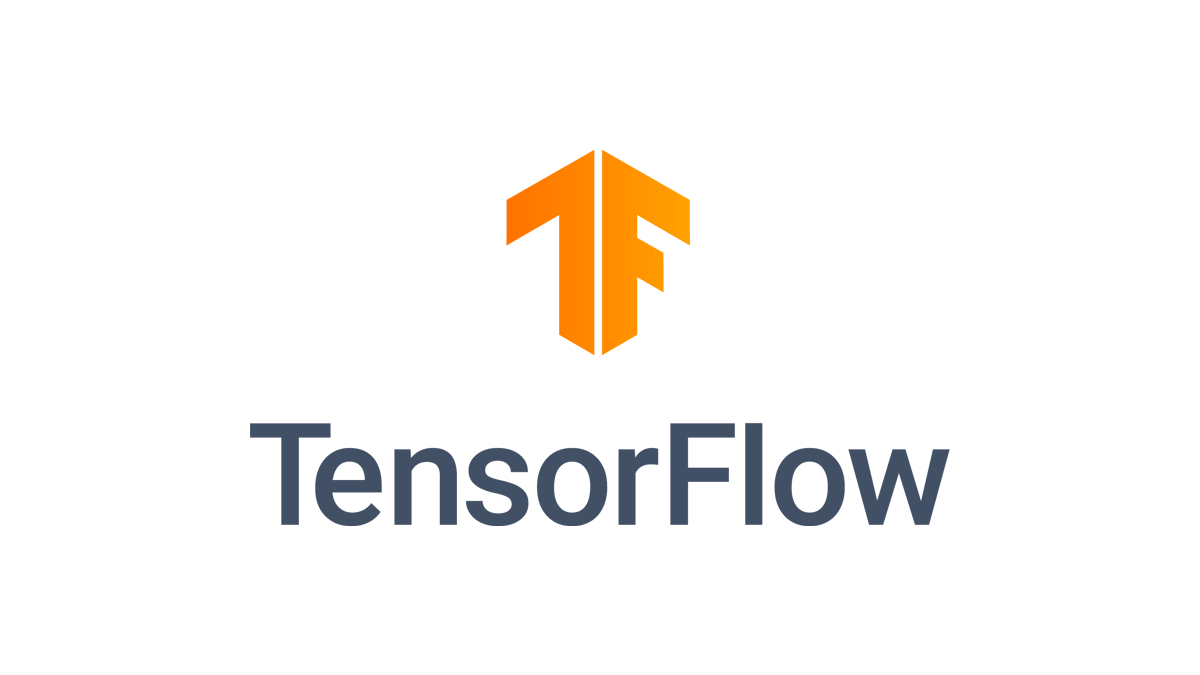Please make sure that this is a build/installation issue. As per our GitHub Policy, we only address code/doc bugs, performance issues, feature requests and build/installation issues on GitHub. tag:build_template
System information
- OS Platform and Distribution (e.g., Linux Ubuntu 16.04): Ubuntu 16.04
- Mobile device (e.g. iPhone 8, Pixel 2, Samsung Galaxy) if the issue happens on mobile device:
- TensorFlow installed from (source or binary): Source and Binary (tried both)
- TensorFlow version: 1.12
- Python version: 3.6
- Installed using virtualenv? pip? conda?: conda
- Bazel version (if compiling from source): 0.18
- GCC/Compiler version (if compiling from source): gcc 5.4.0
- CUDA/cuDNN version: Cudnn - 7.4 , CUDA- 9.0
- GPU model and memory: GeForce GTX 1080 major: 6 minor: 1 memoryClockRate(GHz): 1.8225 8GB
Describe the problem
I tried installting tensorflow 1.12 using both pip install and building from source.However when I am trying to run faster rcnn model i get following error message:
Failed to get convolution algorithm. This is probably because cuDNN failed to initialize, so try looking to see if a warning log message was printed above.
I only get this with tf 1.12 and python 3.6 ,it works fine with python 3.6
Provide the exact sequence of commands / steps that you executed before running into the problem
Any other info / logs
Traceback (most recent call last):
File "/home/user/anaconda3/envs/tf_faust/lib/python3.6/site-packages/tensorflow/python/client/session.py", line 1334, in _do_call
return fn(*args)
File "/home/user/anaconda3/envs/tf_faust/lib/python3.6/site-packages/tensorflow/python/client/session.py", line 1319, in _run_fn
options, feed_dict, fetch_list, target_list, run_metadata)
File "/home/user/anaconda3/envs/tf_faust/lib/python3.6/site-packages/tensorflow/python/client/session.py", line 1407, in _call_tf_sessionrun
run_metadata)
tensorflow.python.framework.errors_impl.UnknownError: Failed to get convolution algorithm. This is probably because cuDNN failed to initialize, so try looking to see if a warning log message was printed above.
[[{{node FeatureExtractor/MobilenetV1/MobilenetV1/Conv2d_0/Conv2D}} = Conv2D[T=DT_FLOAT, data_format="NCHW", dilations=[1, 1, 1, 1], padding="SAME", strides=[1, 1, 2, 2], use_cudnn_on_gpu=true, _device="/job:localhost/replica:0/task:0/device:GPU:0"](FeatureExtractor/MobilenetV1/MobilenetV1/Conv2d_0/Conv2D-0-TransposeNHWCToNCHW-LayoutOptimizer, FeatureExtractor/MobilenetV1/Conv2d_0/weights/read/_4__cf__7)]]
[[{{node Postprocessor/BatchMultiClassNonMaxSuppression/map/while/MultiClassNonMaxSuppression/ClipToWindow_21/Gather/GatherV2_2/_211}} = _Recvclient_terminated=false, recv_device="/job:localhost/replica:0/task:0/device:CPU:0", send_device="/job:localhost/replica:0/task:0/device:GPU:0", send_device_incarnation=1, tensor_name="edge_7500_...GatherV2_2", tensor_type=DT_FLOAT, _device="/job:localhost/replica:0/task:0/device:CPU:0"]]
During handling of the above exception, another exception occurred:
Traceback (most recent call last):
File "/home/user/anaconda3/envs/tf_faust/lib/python3.6/multiprocessing/process.py", line 258, in _bootstrap
self.run()
File "/home/user/anaconda3/envs/tf_faust/lib/python3.6/multiprocessing/process.py", line 93, in run
self._target(*self._args, **self._kwargs)
File "/home/user/anaconda3/envs/tf_faust/lib/python3.6/multiprocessing/pool.py", line 103, in worker
initializer(*initargs)
File "detection_app.py", line 67, in worker
output_q.put(y.get_stats_and_detection(frame))
File "/home/user/faster_rcnn_inception_v2_coco_2018_01_28/base_model.py", line 142, in get_stats_and_detection
boxes, scores, classes, num = self.processFrame(img)
File "/home/user/faster_rcnn_inception_v2_coco_2018_01_28/base_model.py", line 76, in processFrame
feed_dict={self.image_tensor: image_np_expanded})
File "/home/user/anaconda3/envs/tf_faust/lib/python3.6/site-packages/tensorflow/python/client/session.py", line 929, in run
run_metadata_ptr)
File "/home/user/anaconda3/envs/tf_faust/lib/python3.6/site-packages/tensorflow/python/client/session.py", line 1152, in _run
feed_dict_tensor, options, run_metadata)
File "/home/user/anaconda3/envs/tf_faust/lib/python3.6/site-packages/tensorflow/python/client/session.py", line 1328, in _do_run
run_metadata)
File "/home/user/anaconda3/envs/tf_faust/lib/python3.6/site-packages/tensorflow/python/client/session.py", line 1348, in _do_call
raise type(e)(node_def, op, message)
tensorflow.python.framework.errors_impl.UnknownError: Failed to get convolution algorithm. This is probably because cuDNN failed to initialize, so try looking to see if a warning log message was printed above.
[[node FeatureExtractor/MobilenetV1/MobilenetV1/Conv2d_0/Conv2D (defined at /home/user/faster_rcnn_inception_v2_coco_2018_01_28/base_model.py:36) = Conv2D[T=DT_FLOAT, data_format="NCHW", dilations=[1, 1, 1, 1], padding="SAME", strides=[1, 1, 2, 2], use_cudnn_on_gpu=true, _device="/job:localhost/replica:0/task:0/device:GPU:0"](FeatureExtractor/MobilenetV1/MobilenetV1/Conv2d_0/Conv2D-0-TransposeNHWCToNCHW-LayoutOptimizer, FeatureExtractor/MobilenetV1/Conv2d_0/weights/read/_4__cf__7)]]
[[{{node Postprocessor/BatchMultiClassNonMaxSuppression/map/while/MultiClassNonMaxSuppression/ClipToWindow_21/Gather/GatherV2_2/_211}} = _Recvclient_terminated=false, recv_device="/job:localhost/replica:0/task:0/device:CPU:0", send_device="/job:localhost/replica:0/task:0/device:GPU:0", send_device_incarnation=1, tensor_name="edge_7500_...GatherV2_2", tensor_type=DT_FLOAT, _device="/job:localhost/replica:0/task:0/device:CPU:0"]]
Caused by op 'FeatureExtractor/MobilenetV1/MobilenetV1/Conv2d_0/Conv2D', defined at:
File "detection_app.py", line 94, in
pool = Pool(args.num_workers, worker, (input_q, output_q))
File "/home/user/anaconda3/envs/tf_faust/lib/python3.6/multiprocessing/context.py", line 119, in Pool
context=self.get_context())
File "/home/user/anaconda3/envs/tf_faust/lib/python3.6/multiprocessing/pool.py", line 174, in init
self._repopulate_pool()
File "/home/user/anaconda3/envs/tf_faust/lib/python3.6/multiprocessing/pool.py", line 239, in _repopulate_pool
w.start()
File "/home/user/anaconda3/envs/tf_faust/lib/python3.6/multiprocessing/process.py", line 105, in start
self._popen = self._Popen(self)
File "/home/user/anaconda3/envs/tf_faust/lib/python3.6/multiprocessing/context.py", line 277, in _Popen
return Popen(process_obj)
File "/home/user/anaconda3/envs/tf_faust/lib/python3.6/multiprocessing/popen_fork.py", line 19, in init
self._launch(process_obj)
File "/home/user/anaconda3/envs/tf_faust/lib/python3.6/multiprocessing/popen_fork.py", line 73, in _launch
code = process_obj._bootstrap()
File "/home/user/anaconda3/envs/tf_faust/lib/python3.6/multiprocessing/process.py", line 258, in _bootstrap
self.run()
File "/home/user/anaconda3/envs/tf_faust/lib/python3.6/multiprocessing/process.py", line 93, in run
self._target(*self._args, **self._kwargs)
File "/home/user/anaconda3/envs/tf_faust/lib/python3.6/multiprocessing/pool.py", line 103, in worker
initializer(*initargs)
File "detection_app.py", line 62, in worker
y = DetectorAPI()
File "/home/user/faster_rcnn_inception_v2_coco_2018_01_28/base_model.py", line 36, in init
tf.import_graph_def(od_graph_def, name='')
File "/home/user/anaconda3/envs/tf_faust/lib/python3.6/site-packages/tensorflow/python/util/deprecation.py", line 488, in new_func
return func(*args, **kwargs)
File "/home/user/anaconda3/envs/tf_faust/lib/python3.6/site-packages/tensorflow/python/framework/importer.py", line 442, in import_graph_def
_ProcessNewOps(graph)
File "/home/user/anaconda3/envs/tf_faust/lib/python3.6/site-packages/tensorflow/python/framework/importer.py", line 234, in _ProcessNewOps
for new_op in graph._add_new_tf_operations(compute_devices=False): # pylint: disable=protected-access
File "/home/user/anaconda3/envs/tf_faust/lib/python3.6/site-packages/tensorflow/python/framework/ops.py", line 3440, in _add_new_tf_operations
for c_op in c_api_util.new_tf_operations(self)
File "/home/user/anaconda3/envs/tf_faust/lib/python3.6/site-packages/tensorflow/python/framework/ops.py", line 3440, in
for c_op in c_api_util.new_tf_operations(self)
File "/home/user/anaconda3/envs/tf_faust/lib/python3.6/site-packages/tensorflow/python/framework/ops.py", line 3299, in _create_op_from_tf_operation
ret = Operation(c_op, self)
File "/home/user/anaconda3/envs/tf_faust/lib/python3.6/site-packages/tensorflow/python/framework/ops.py", line 1770, in init
self._traceback = tf_stack.extract_stack()
UnknownError (see above for traceback): Failed to get convolution algorithm. This is probably because cuDNN failed to initialize, so try looking to see if a warning log message was printed above.
[[node FeatureExtractor/MobilenetV1/MobilenetV1/Conv2d_0/Conv2D (defined at /home/user/faster_rcnn_inception_v2_coco_2018_01_28/base_model.py:36) = Conv2D[T=DT_FLOAT, data_format="NCHW", dilations=[1, 1, 1, 1], padding="SAME", strides=[1, 1, 2, 2], use_cudnn_on_gpu=true, _device="/job:localhost/replica:0/task:0/device:GPU:0"](FeatureExtractor/MobilenetV1/MobilenetV1/Conv2d_0/Conv2D-0-TransposeNHWCToNCHW-LayoutOptimizer, FeatureExtractor/MobilenetV1/Conv2d_0/weights/read/_4__cf__7)]]
[[{{node Postprocessor/BatchMultiClassNonMaxSuppression/map/while/MultiClassNonMaxSuppression/ClipToWindow_21/Gather/GatherV2_2/_211}} = _Recvclient_terminated=false, recv_device="/job:localhost/replica:0/task:0/device:CPU:0", send_device="/job:localhost/replica:0/task:0/device:GPU:0", send_device_incarnation=1, tensor_name="edge_7500_...GatherV2_2", tensor_type=DT_FLOAT, _device="/job:localhost/replica:0/task:0/device:CPU:0"]]
stat:awaiting response type:build/install




